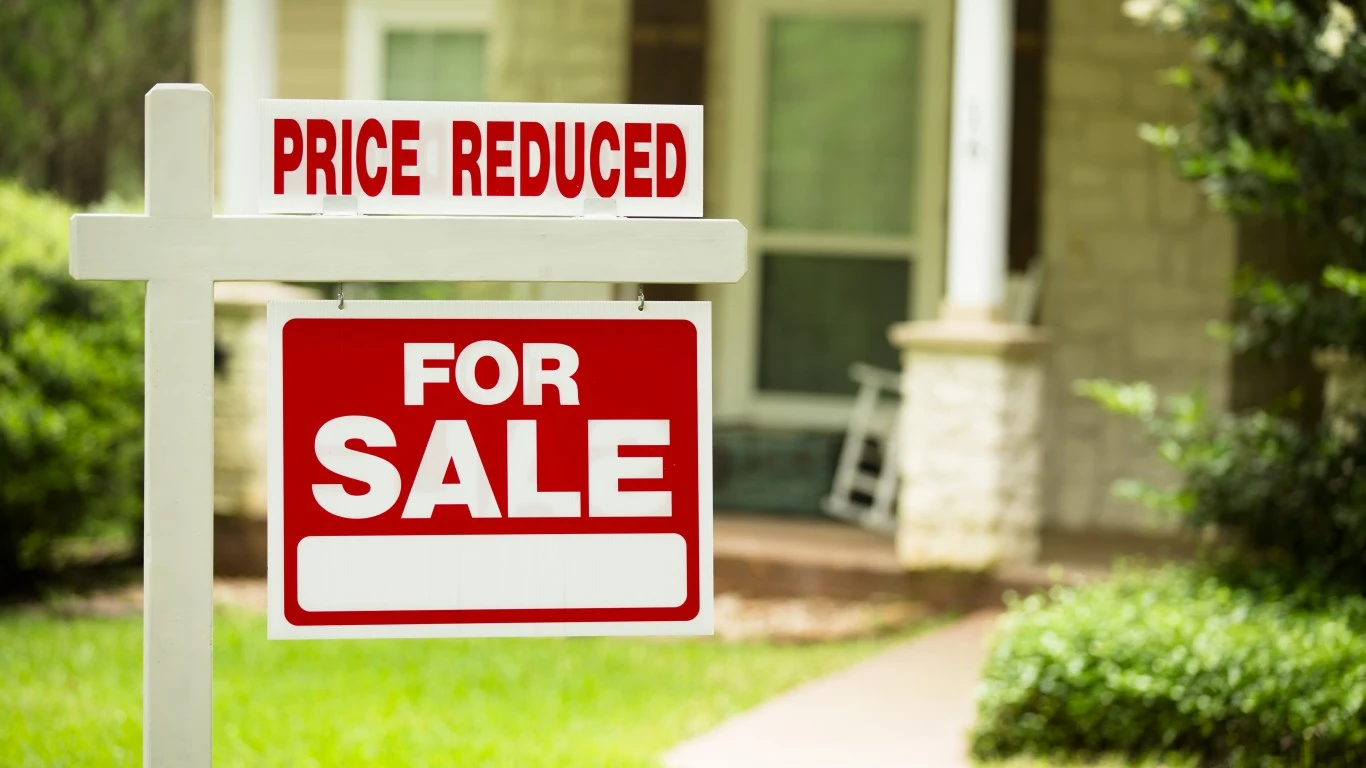
Over the pandemic, the US government fought hard to avoid financial fallout and lower economic output by boosting the economy with stimulus checks and financial support measures. However, that sent inflation out of control.
On the plus side, here are five reasons why this could mean housing prices might be about to drop.
More Expensive Mortgages
The biggest reason for the link between rising inflation and falling housing prices isn’t due to the inflation itself — instead, it’s the reaction to the inflation. No government is happy to sit back and watch inflation destroy its country, so the Fed increased its fund rate recently.
When the fund’s rate is higher, it affects banks, causing interest rates to rise and compensate, including mortgage rates. This discourages borrowing and spending, keeping inflation low — and possibly leading to deflation, resulting in lower house prices.
When mortgage interest rates increase, a mortgage generally costs homebuyers more. For example, person A might have taken out a 30-year fixedate mortgage of $300,000 with an interest rate of 2.5%, meaning they faced monthly payments of $1,449.
But if the mortgage rate rose to 4%, this same mortgage would result in monthly payments of $1,696. It’s a substantial difference.
The basic laws of supply and demand dictate that higher prices result in lower demand, causing house prices to fall. Leading to our next point.
Reduced Demand for Houses
The pandemic saw a sharp rise in people purchasing properties thinking they had the perfect window of opportunity to get onto the property ladder or move house. Several factors were behind this trend, and one was the extremely low mortgage rates — it seemed like the ideal time to take advantage of conditions while they lasted.
People also realized during lockdown that living in shared housing, apartments, or cramped city conditions wasn’t as desirable as they’d once thought, spurring an influx of people moving to more remote, spacious locations. Others who saved more than ever thanks to the lack of vacations, eating out, and commuting to work.
The shift resulted in a massive pool of buyers competing for a limited housing supply, sending the real estate market crazy.
But now, both data and anecdotes suggest this trend is reversing, although it’s still too early to know for sure.
Smaller Pool of Potential Buyers
The effect of the rise in the federal funds rate on demand is two-pronged. Higher mortgage prices are likely to reduce demand for houses directly — but rising inflation has increased the cost of living, meaning there’s a lower number of people who can afford a home right now.
Even a few months ago, it might have seemed feasible for the average person to put a few hundred dollars aside each month to save for a home deposit. But now that a much more significant proportion of our income must go towards fuel, heating our homes, and even the grocery store, this option is viable for a smaller percentage of people.
Figures show that wages have failed to keep pace with inflation, making buying a property more difficult for first-time buyers.
The change means that demand is taking a hit from multiple directions.
As they become priced out of their dream property, some buyers will look for the next tier down for houses, but others will entirely bow out of the market. In some ways, this can become a self-fulfilling prophecy.
Uncertainty
People have been talking about the “uncertainty of current times” over the past few years. For a while, it was the pandemic, then rising inflation, and now geopolitical tensions came along to cause even more uncertainty.
With this volatility, many would-be house buyers may decide to delay buying a property until we return to an era of more stability.
And funnily enough, the lower demand that comes along with this can further drop prices. Don’t underestimate the role of human sentiment and expectations.
Property Less Attractive as Investment
Recently, stocks have been very volatile, and investors are wondering what to do with their money.
Although uncertainty is almost always bad for potential IPOs and listed stocks, it’s sometimes positive for the real estate market, often viewed as a “safe haven” from inflation. However, this may not be true this time around.
Buying a property for investment purposes in the US may not seem like a good idea, thanks to recent changes. Whereas owning a second home was beneficial for tax breaks in the past, this is no longer the case.
Lawmakers have recently put a $10,000 cap on SALT deductions, and currently a $750,000 limit on mortgage interest deductions. The tax rule changes aim to keep the economy in check.
With uncertainty, will investors look elsewhere to use their money and further reduce demand?
Will You Wait This One Out?
Given these points, it might seem like a no-brainer to wait out the market until housing prices fall. However, it’s still too early to tell, and no way of knowing what will happen next. So, where are you placing your bets?
Originally published at Wealth of Geeks
Sponsored: Find a Qualified Financial Advisor
Finding a qualified financial advisor doesn’t have to be hard. SmartAsset’s free tool matches you with up to 3 fiduciary financial advisors in your area in 5 minutes. Each advisor has been vetted by SmartAsset and is held to a fiduciary standard to act in your best interests. If you’re ready to be matched with local advisors that can help you achieve your financial goals, get started now.






